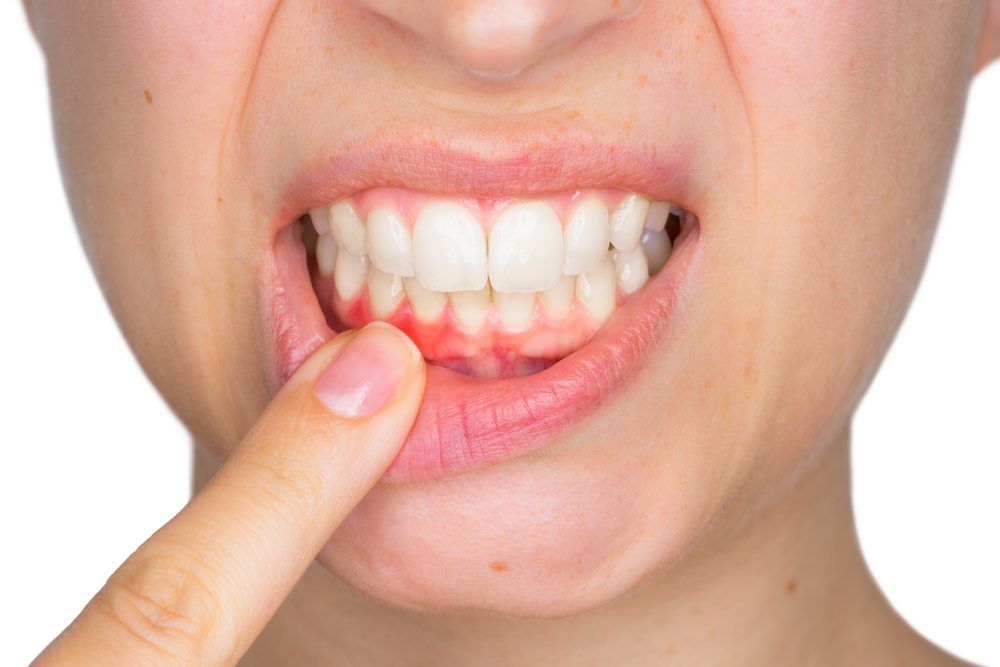Gums Swollen Around One Tooth

Swollen gums around one tooth can be a source of discomfort and anxiety, often signaling an underlying issue that requires attention. This condition, also known as localized gum swelling, can arise from various factors, including poor oral hygiene, dental problems, or even systemic health issues. Understanding the causes, symptoms, and appropriate treatments is crucial for resolving the issue and preventing further complications.
Causes of Swollen Gums Around One Tooth
Plaque and Tartar Accumulation: The most common cause of swollen gums is the accumulation of plaque and tartar around the teeth. When bacteria in the mouth accumulate on the teeth, they can cause inflammation of the gums, leading to swelling.
Gingivitis: This is an early stage of gum disease, characterized by inflammation of the gums (gingiva) due to poor oral hygiene. Gingivitis can cause redness, swelling, and bleeding of the gums, particularly around the affected tooth.
Abscessed Tooth: An abscess in the tooth or the gum can cause significant swelling. This occurs when a pocket of pus forms due to a bacterial infection, leading to severe pain and swelling around the tooth.
Impacted Tooth: When a tooth does not have enough space to come in or develops in the wrong position, it can push against the surrounding gum and bone, causing swelling and discomfort.
Dental Work: Recent dental procedures, such as fillings, crowns, or dental implants, can sometimes cause gum swelling around the treated tooth due to irritation or infection.
Hormonal Changes: Fluctuations in hormone levels, such as those experienced during pregnancy, puberty, or menopause, can affect gum sensitivity and lead to swelling.
Nutritional Deficiencies: Lack of essential nutrients like vitamin C can impair the body’s ability to fight off infections and maintain healthy gums, potentially leading to swelling.
Symptoms
- Visible Swelling: The gum around the affected tooth may appear red, swollen, and tender to the touch.
- Pain: There might be a persistent dull ache or sharp pain, especially when pressing on the gum or tooth.
- Bleeding: Gums may bleed easily during brushing or flossing.
- Bad Breath (Halitosis): Accumulation of bacteria can lead to bad breath.
- Sensitivity: The tooth may become sensitive to temperature changes or sweet and sour tastes.
Treatment and Management
- Professional Dental Cleaning: Regular dental cleanings can help remove plaque and tartar, reducing gum inflammation.
- Good Oral Hygiene: Brushing at least twice a day and flossing once a day can help prevent plaque buildup.
- Antibacterial Mouthwash: Using a mouthwash can help reduce bacteria and prevent further infection.
- Dental Treatments: Depending on the cause, treatments such as root canal therapy for an abscessed tooth, adjustment of dental work, or extraction of an impacted tooth might be necessary.
- Medications: Over-the-counter pain relievers and anti-inflammatory drugs can help manage pain and swelling. In some cases, antibiotics may be prescribed if there’s a bacterial infection.
- Nutritional Improvements: Ensuring a balanced diet rich in vitamins and minerals is essential for healing and maintaining gum health.
Prevention
Preventing swollen gums around one tooth involves maintaining good oral hygiene practices, including regular brushing, flossing, and dental check-ups. A healthy diet, avoidance of tobacco products, and management of systemic health conditions can also play a significant role in preventing gum diseases.
When to Seek Dental Care
If you notice any signs of swollen gums, such as redness, swelling, bleeding, or pain around a tooth, it’s essential to consult a dentist. Early intervention can prevent the progression of gum disease and address any underlying issues before they become more severe.
FAQs
Can swollen gums around one tooth be a sign of a more serious condition?
+Yes, swollen gums can be a symptom of more serious conditions such as periodontitis, a advanced stage of gum disease that can lead to tooth loss if not treated. It's crucial to have any signs of gum swelling checked by a dentist.
How long does it take for swollen gums to heal?
+The healing time for swollen gums can vary depending on the cause and the effectiveness of the treatment. With proper care and treatment, mild cases of gingivitis can resolve within a few days to a week. More severe conditions may require longer treatment periods.
Can home remedies help with swollen gums?
+While certain home remedies like saltwater rinses can help reduce swelling and ease pain, they should not replace professional dental care. It's essential to consult a dentist to identify the underlying cause of the swollen gums and receive appropriate treatment.
In conclusion, swollen gums around one tooth should not be ignored, as they can signal underlying issues that require prompt attention. By understanding the potential causes, implementing good oral hygiene practices, and seeking professional dental care when necessary, individuals can manage and prevent gum swelling, ensuring the health and longevity of their teeth and gums.

